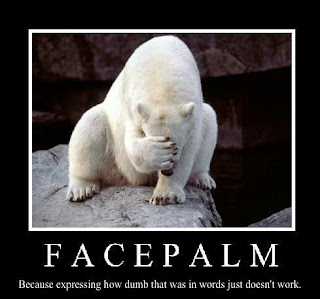RELATIONS WITH CONGRESS
Not to be confused with "relations with interns", where Bill Clinton stands alone in the top spot.
Seriously, the key in this category is reaching across the aisle for support when needed, but generally being able to get his initiatives through Congress. The C-SPAN survey winner, Lyndon Johnson, did exactly that with some of the most incredible legislation. Considering his history as a legislator, and former Senate Whip and Minority Leader, he was masterful in getting legislation passed, including the Civil Rights Act and the Voting Rights Act. In an age when his own party mostly opposed these bills, this was no small feat.
Johnson gets my vote too.
On the other hand, the C-SPAN survey goes to Andrew Johnson for last place, and I have to agree with that too. When a president is unsuccessful in dealing with his own party in control of Congress, eventually getting impeached by them, that tells you all you need to know.
VISION / SETTING AN AGENDA
When discussing "vision", this is about prioritization. You look at your main goal, and everything else you believe to be true becomes secondary to that goal, even if it means going against things you may believe in order to accomplish your vision.
To me, the textbook president on vision is Ronald Reagan. His initial goal as president was to fix the economy, which was mired in high inflation and unemployment. He lowered taxes and allowed the Federal Reserve's policies to take care of the rest. By the end of his first term, that was fixed.
Next, he set his sights on ending the Cold War. Between increasing defense spending (in spite of having to increase deficit spending which he opposed but knew it had to be done to accomplish his goal), rhetoric (from his "Evil empire" speech below, to his later admonition to Soviet leader Mikhail Gorbachev to "tear down this wall") , and diplomacy (which culminated in 1987's INF Treaty), Reagan's every action eventually led to the fall of the Soviet Union in 1991 (with a little help from his successor George H.W. Bush).
VISION / SETTING AN AGENDA
When discussing "vision", this is about prioritization. You look at your main goal, and everything else you believe to be true becomes secondary to that goal, even if it means going against things you may believe in order to accomplish your vision.
To me, the textbook president on vision is Ronald Reagan. His initial goal as president was to fix the economy, which was mired in high inflation and unemployment. He lowered taxes and allowed the Federal Reserve's policies to take care of the rest. By the end of his first term, that was fixed.
Next, he set his sights on ending the Cold War. Between increasing defense spending (in spite of having to increase deficit spending which he opposed but knew it had to be done to accomplish his goal), rhetoric (from his "Evil empire" speech below, to his later admonition to Soviet leader Mikhail Gorbachev to "tear down this wall") , and diplomacy (which culminated in 1987's INF Treaty), Reagan's every action eventually led to the fall of the Soviet Union in 1991 (with a little help from his successor George H.W. Bush).
The C-SPAN survey picked Abraham Lincoln instead. While Lincoln does deserve some credit, I question whether he forgot the founding principals in his endeavor to hold the Union together. Without the founding principals, doesn't that defeat the purpose? But that is another argument in itself. In summary, I am not saying Lincoln was bad in this category, or even wrong, only that there are still questions surrounding his vision.
At the bottom of the list, the C-SPAN survey picks James Buchanan. The sad thing is Buchanan did have a vision (he believed in spreading the glory that was America to other nearby countries), and in another time his vision might have worked. But in the run-up to the Civil War, he was the wrong guy in the wrong place at the wrong time doing the wrong things.
To me, lack of vision is defined by George W. Bush. He fumbled around in office for a few months before the 9/11 attacks, and then he was off to war. Unfortunately, his plans to introduce democracy in Afghanistan (and later Iraq) were flawed by his "on the cheap" execution. You don't fight a war on a budget, as was evidenced by the need for "the surge" later. Even then, Afghanistan and Iraq are still struggling with the concept of democracy. One can even argue that Bush's actions led to the rise of ISIS.
And let us not forget Bush's miserable handling of the economy. Sure, he fixed the recession left to him by Bill Clinton, only to sign everything Congress sent him, eventually ending with the recession of 2008.
Finally, when Bush got re-elected in 2004, promising to overhaul Social Security with a revised privatized retirement plan for future generations, his vision got derailed under the first sign of political pressure. That is the definition of spineless.
(to be continued)





